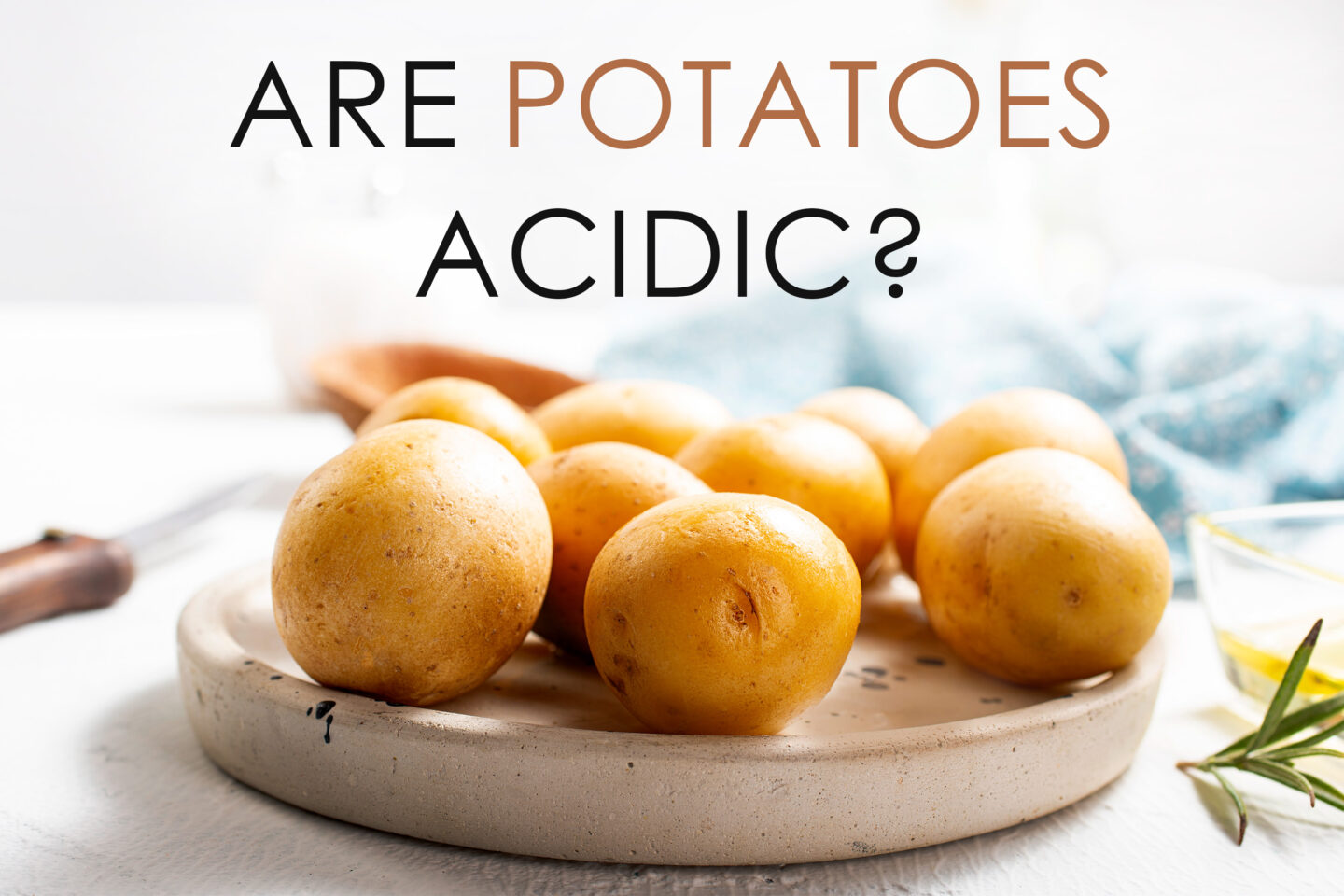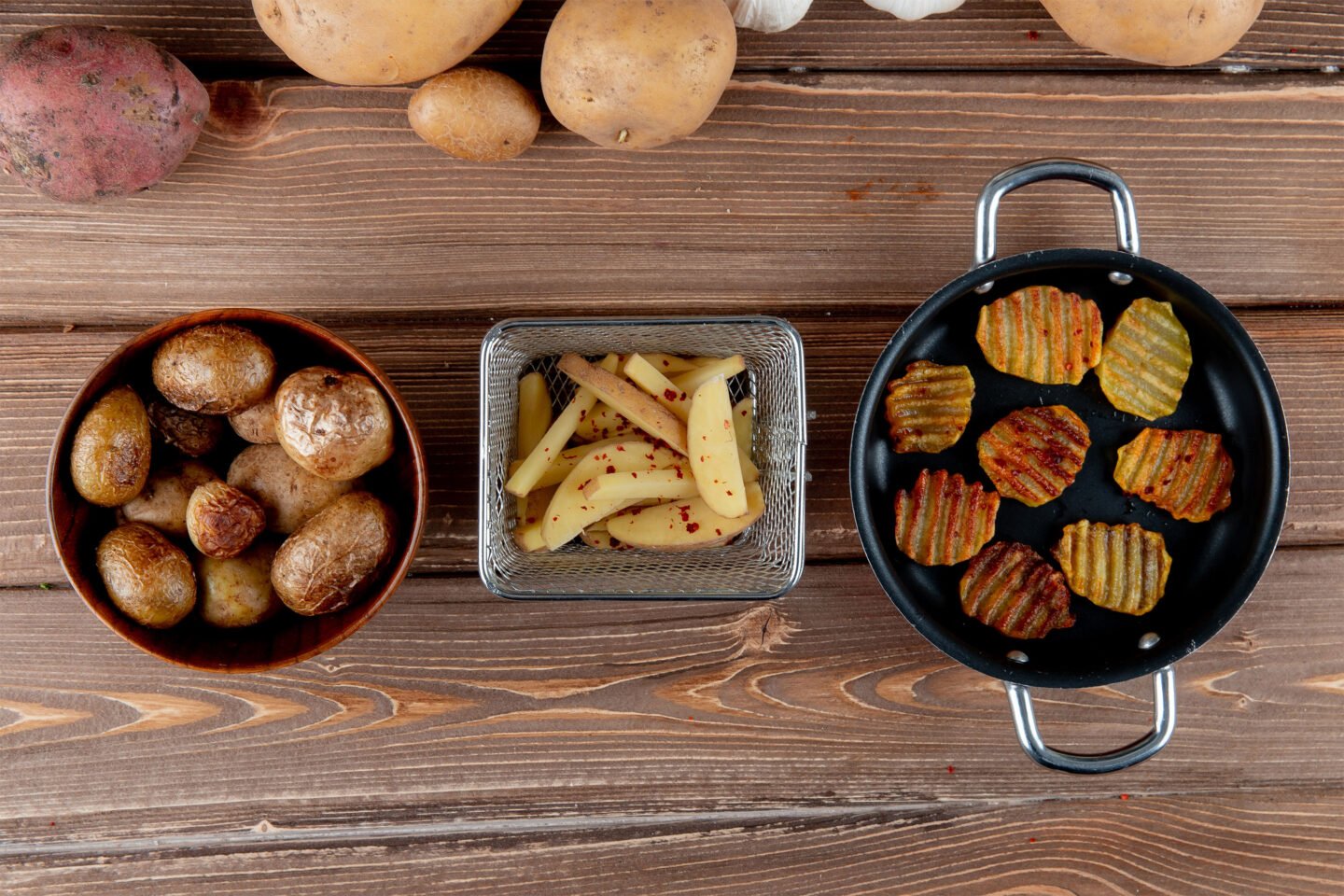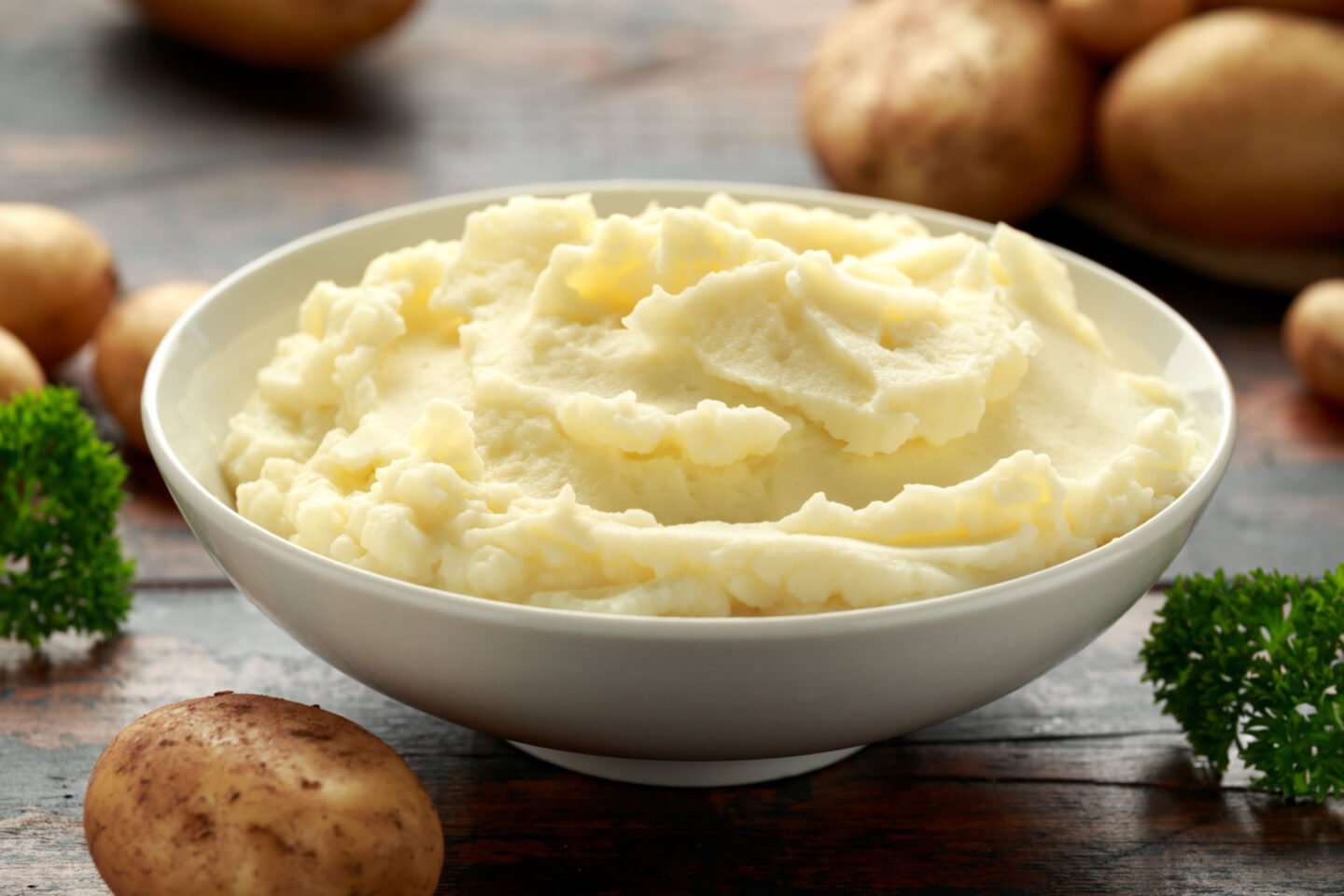Potatoes are a critically important food staple globally. They're usually cheap to buy and easy to grow, and many cuisines have specialty dishes created from potatoes. They're also nutritious and versatile in the kitchen, found roasted as accompaniments to meat, in salads, and baked with healthy toppings.

However, modern diets filled with processed foods have led to an increasing number of people suffering from acid reflux and GERD. These people often follow a diet low in acidic foods and drinks to avoid triggering or worsening their symptoms. Heartburn, one of the most common symptoms, is always highly unpleasant and can be debilitating.
Can people with acid reflux safely add this most popular of vegetables to their diets?
Table of Contents
Are Potatoes Acidic or Alkaline?
Potatoes are slightly acidic but are alkaline-forming, so they're unlikely to trigger acid reflux and GERD symptoms.
They're highly nutritious but high in calories, so they're an excellent addition to your diet in moderation.
It's important to note that while potatoes alone do not trigger acid reflux, people with GERD should avoid eating french fries and potato chips as they are high in fat and may trigger heartburn.
What Is the pH of Potatoes?
The pH of potatoes is around 5.4-5.9, making them slightly acidic. However, the effect of potatoes changes depending on how you cook them. For instance, adding large amounts of butter, chili, garlic, and other acidic or irritating ingredients may trigger symptoms.
How Healthy Are Potatoes?

Potatoes are highly nutritious. They're rich in fiber, which keeps you feeling full longer after eating, aiding healthy weight loss. It also helps control cholesterol and blood sugar levels, reducing your risk of heart disease.
Fiber aids digestion, keeping you regular and helping control irritable bowel syndrome symptoms.
Potatoes are rich in antioxidants, which remove free radicals from your body, reducing oxidative stress and cellular damage. They also reduce your risk of developing heart disease and some cancers.
An unpeeled potato contains over 40% of the recommended daily intake of vitamin C, which helps keep gums healthy, boosts immunity, and aids iron absorption. It also contains around 50% of the recommended daily vitamin B6 intake, which may alleviate depression and anxiety.
Potatoes are an excellent source of calcium, magnesium, and folate, contributing to bone density, healthy teeth, a robust immune system, and red blood cell formation.
Folate is a critically important nutrient during early pregnancy, as it's necessary for healthy fetal development.
Don't know what to drink? Check out these articles: 20 Most and Least Acidic Juices and 20+ Alcoholic Drinks Ranked by Acidity Level
Are Potatoes Bad for Acid Reflux?
Most people with acid reflux, heartburn, and GERD can safely consume potatoes. Since potatoes are not acid-forming, they don't add to the body's acid load.
However, everyone's symptom triggers are different, and potatoes may trigger heartburn in some.
Are Sweet Potatoes Acidic?
Sweet potatoes are slightly acidic, with a pH of 5.3-5.6, so they're unlikely to trigger acid reflux symptoms.
They're also highly nutritious, containing more vitamin A and fiber than regular potatoes.
Are Baked Potatoes Acidic?
Baked potatoes are as acidic as raw potatoes, so they're safe for most followers of a low-acid diet.
Are Mashed Potatoes Acidic?

Although mashed potatoes aren't any more acidic than baked, they often contain salt and butter, which may trigger your heartburn.
Have mashed potatoes with alkaline foods, such as cauliflower or broccoli, and aim for a diet of 80% alkaline and 20% acidic foods.
Don't know which alkaline foods to include in your diet? We've got you covered. Read our guide to the 15 Alkaline Foods You Should Include In Your Diet.
